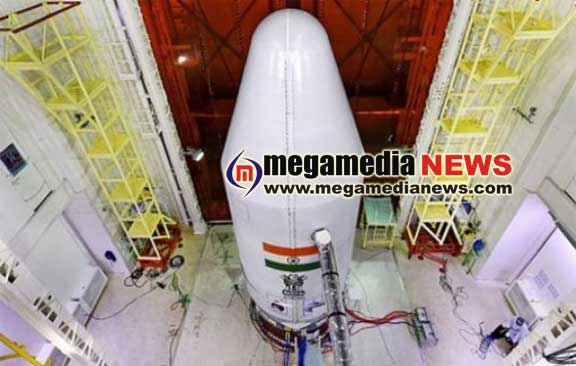Chandrayaan-2 to be launched in January
1:55 PM, Tuesday, October 9th, 2018 Bengaluru: ISRO’s moon mission Chandrayaan 2, a ‘calculated risk’ undertaken in the knowledge that 50 per
Bengaluru: ISRO’s moon mission Chandrayaan 2, a ‘calculated risk’ undertaken in the knowledge that 50 per
cent of such launches have failed, will land at a spot where no country has gone before,its chairman K Sivan said Saturday.
“Though half of lunar missions have failed, ISRO is taking a calculated risk, because calculated risk along with innovation is absolute essential if we want to be a major player in the space industry.
Chandrayan 2 is also a calculated risk,” he said. He said the landing site at the Moon is above 70- degree latitude, “where no one else has gone before”.
He said India has not only developed launch vehicles and satellites, but also undertaken extremely challenging and inspiring missions like Chandrayaan, Mars Orbiter Mission and Astrosat.
Sivan was speaking at the ninthConvocation of GITAM Deemed to be University at Rudraram in neighbouring Sangareddy district.
Sivan said India will have its first demonstration flight of SSLV by mid-2019, which would be the cheapest launch vehicle in the world with the least turnaround time.
He said a lot of innovation has gone into the design to ensure that the vehicle is assembled in around 72 hours rather than 70 days required to assemble other launch vehicles.
Just six people with a laptop can assemble and launch the SSLV, a university release quoted him as saying.
The ISRO chairman said India today has the worlds second largest internet user base. But the broadband speed at present ranks the nation at 76 in the world, he said.
“With high throughput satellites GSAT-11, GSAT-29 and GSAT-20 set to be launched before the end of 2019, the country can enjoy more than 100 Gbps high bandwidth connectivity,which will help bridge the digital divide”, he said.
Sivan said the Centre has approved Rs 10,900 crore for 30 PSLVs and 10 GSLV Mk-III launches in the next four years, in addition to more than 50spacecraft.
He said ISRO was not only interested in engaging with established industries, but would also like to see start-ups taking up the challenge.
Sivan also said that ISRO has established a capacity building program office to widen the participation of academia and industry in the space sector.
“The idea is to conduct activities related to space technology research across the nation through the
establishment of Space Technology incubation centers,”he said.
Three Ph.D. degrees and over 1,017 graduate and postgraduate degrees were awarded at he convocation in the faculties of technology and management, the release added.
Simillar Posts
Warning: count(): Parameter must be an array or an object that implements Countable in /home/megamcaq/public_html/wp-content/plugins/post-plugin-library/common_functions.php on line 357
- None Found
Leave a Reply
© Copyright 2008 www.megamedianews.com All Rights Reserved. Privacy Policy








 Posted in
Posted in  Tags:
Tags: 



